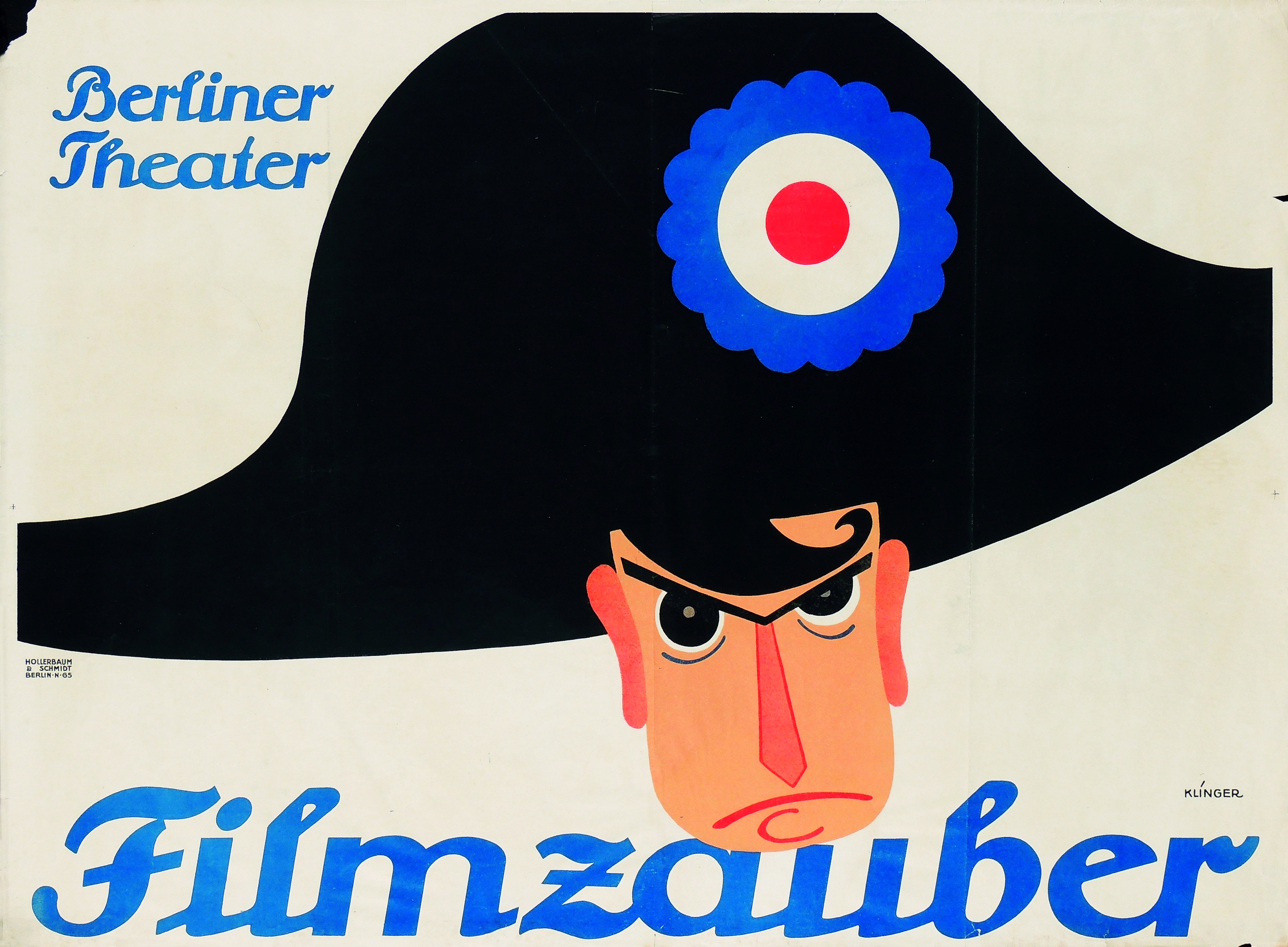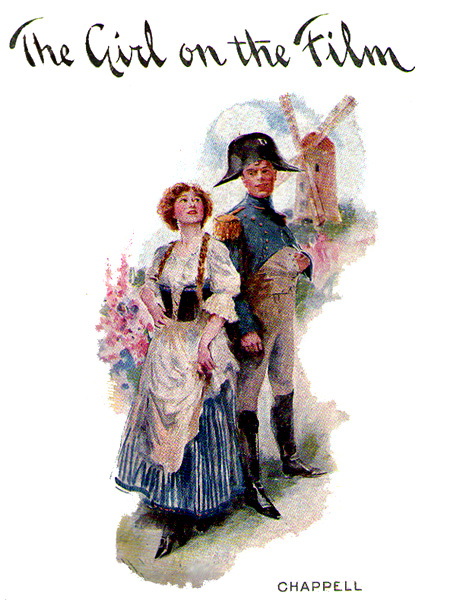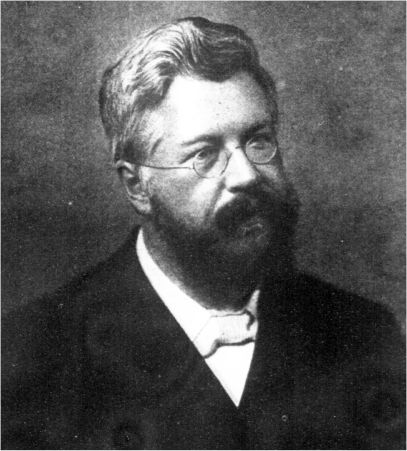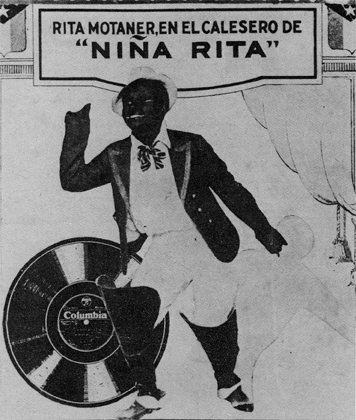|
Filmzauber
''Filmzauber'', literally 'Film Magic', is a Posse mit Gesang (a kind of popular musical drama) in four scenes by Walter Kollo and Willy Bredschneider, with a German libretto by Rudolf Bernauer and Rudolph Schanzer. A parody of (then popular) silent films, ''Filmzauber'' premiered in Berlin in 1912. An English version, ''The Girl on the Film'', translated and adapted by James T. Tanner with additional music by Albert Szirmai, premiered in London in 1913 and was later performed in New York and elsewhere. Performance history ''Filmzauber'' was first performed at the Berliner Theater, Berlin on 19 October 1912 in music, 1912 with Lisa Weise, and the celebrated Austrian singer and later film actor, Oscar Sabo. It was revived (with an updated text) at the Heimathafen Neukölln Berlin on 18 April 2009, directed by Stefanie Aehnelt and conducted by Bruno Franceschini. Main roles *Adalbert Musenfett, ''film producer and actor'' *Maria Gesticulata, ''Italian tragedienne'' *Fränze Papen ... [...More Info...] [...Related Items...] OR: [Wikipedia] [Google] [Baidu] |
Filmzauber Score 1912
''Filmzauber'', literally 'Film Magic', is a Posse mit Gesang (a kind of popular musical drama) in four scenes by Walter Kollo and Willy Bredschneider, with a German libretto by Rudolf Bernauer and Rudolph Schanzer. A parody of (then popular) silent films, ''Filmzauber'' premiered in Berlin in 1912. An English version, ''The Girl on the Film'', translated and adapted by James T. Tanner with additional music by Albert Szirmai, premiered in London in 1913 and was later performed in New York and elsewhere. Performance history ''Filmzauber'' was first performed at the Berliner Theater, Berlin on 19 October 1912 with Lisa Weise, and the celebrated Austrian singer and later film actor, Oscar Sabo. It was revived (with an updated text) at the Heimathafen Neukölln Berlin on 18 April 2009, directed by Stefanie Aehnelt and conducted by Bruno Franceschini. Main roles *Adalbert Musenfett, ''film producer and actor'' *Maria Gesticulata, ''Italian tragedienne'' *Fränze Papendieck, ''M ... [...More Info...] [...Related Items...] OR: [Wikipedia] [Google] [Baidu] |
Adrian Ross
Arthur Reed Ropes (23 December 1859 – 11 September 1933), better known under the pseudonym Adrian Ross, was a prolific English writer of lyrics, contributing songs to more than sixty British musical comedies in the late 19th and early 20th centuries. He was the most important lyricist of the British stage during a career that spanned five decades. At a time when few shows had long runs, nineteen of his West End shows ran for over 400 performances. Starting out in the late 1880s, Ross wrote the lyrics for the earliest British musical theatre hits, including '' In Town'' (1892), ''The Shop Girl'' (1894) and ''The Circus Girl'' (1896). Ross next wrote the lyrics for a string of hit musicals, beginning with '' A Greek Slave'' (1898), '' San Toy'' (1899), '' The Messenger Boy'' (1900) and '' The Toreador'' (1901) and continuing without a break through World War I. He also wrote the English lyrics for a series of hit adaptations of European operettas beginning with '' The Merr ... [...More Info...] [...Related Items...] OR: [Wikipedia] [Google] [Baidu] |
Walter Kollo
Walter Kollo (28 January 1878 – 30 September 1940) was a German composer of operettas, Possen mit Gesang, and Singspiele as well as popular songs. He was also a conductor and a music publisher. Kollo was born in Neidenburg, East Prussia. His best known work, the operetta ' (1913), was the basis of a 1917 Sigmund Romberg operetta in America entitled '' Maytime''. A merchant's son, he was expected to take his father's trade but devoted himself to the study of music in the Königsberg Sondershausen music conservatory with his mother's help. He became a theater conductor for a brief time in Königsberg before going to Berlin in 1899. In Berlin, he turned towards popular and light music, fromin8, wrote music for the popular musical theater. In 1910, with Willy Bredschneider he composed his first great success, ''Große Rosinen'', produced on New Year's Eve 191,1. Somewhat prolifically, he continued composing musical comedies, farces and operettas, with including ''Wie einst ... [...More Info...] [...Related Items...] OR: [Wikipedia] [Google] [Baidu] |
Posse Mit Gesang
("farce with singing", plural: ) is a form of popular German-language music drama, that developed in the late 18th and early 19th centuries. Early examples are sometimes called or . It is also sometimes referred to simply as (farce). Associated with Vienna, and also Berlin and Hamburg, the was similar to the Singspiel, but generally had more action and less music than the more operatic form. Viennese examples included Ferdinand Raimund's of 1828 and many of the works of Johann Nestroy. Composers who contributed music for included Wenzel Müller, Conradin Kreutzer, and Philip Jakob Riotte. Some 20th-century examples of posse written by Walter Kollo were (1912) and (1913). More specialized examples of the genre were (daily life themes), (magic), (personalities), (situations), and (parodies). Other examples of *1820: by Franz Schubert, Vienna, Theater am Kärntnertor *1826: by Wenzel Müller, Vienna, Theater in der Leopoldstadt *1842: by Johann Nestroy (text) and ... [...More Info...] [...Related Items...] OR: [Wikipedia] [Google] [Baidu] |
Rudolf Bernauer
Rudolf Bernauer (20 January 1880, in Vienna – 27 November 1953, in London) was an Austrian lyricist, librettist, screenwriter, film director, producer,"Rudolph Bernauer" (aka Rudolf Bernauer), IMDb, 2009, webpageIMDb-76587. and actor. His autobiography is ''"Theater meines Lebens. Erinnerungen"'' ("Theater of my life: Memories"), published in Berlin in 1955. Life He made his 1900 debut as an actor at the Deutsches Theater in Berlin. In 1907, he took over the Berlin Theater with Carl Meinhardt, then in 1911 to the Hebbel Theater and 1913, the comedy house. Finally, he was the owner of the theater at Nollendorfplatz. Rudolf Bernauer wrote lyrics for the Berlin operettas: ''Der liebe Augustin'' (1912), ' (1913), ''The mysterious history of the conductor Kreisler'' (1922), for which his own simultaneous stage ("Kreislerbühne") was developed, and ''Kreislers Eckfenster'' (1923). His songs include: ''"Die Männer sind alle Verbrecher"'' ("All men are criminals..."), ''"Untern L ... [...More Info...] [...Related Items...] OR: [Wikipedia] [Google] [Baidu] |
Rudolph Schanzer
Rudolf (or Rudolph) Schanzer (12 January 1875 – 1944) was an Austrian playwright and journalist. He is primarily known for the numerous operetta librettos that he wrote for composers such as Leo Fall, Jean Gilbert, Emmerich Kálmán, and Ralph Benatzky. He was born in Vienna and died in Italy where he committed suicide after his arrest by the Gestapo. Life and career Schanzer was born into a Jewish family in Vienna where his father worked as a shipping agent. From 1894 to 1895 he studied law at the University of Vienna and then went to Paris where he worked as a private secretary and journalist. After Paris, he settled in Berlin working there as a journalist, critic, and editor for the '. He also began writing theatrical pieces in his spare time. Some of his earliest works were for pantomimes and cabaret and variety shows. He then began collaborating on operetta librettos with his friends and fellow writers Rudolf Bernauer and Ernst Welisch. Their success led him to becoming a ... [...More Info...] [...Related Items...] OR: [Wikipedia] [Google] [Baidu] |
Emmy Wehlen
Emily "Emmy" Wehlen (1887–1977) was a German-born Edwardian musical comedy and silent film actress who vanished from the public eye while in her early thirties. Biography Wehlen was born in Mannheim, Germany, where, as a teenager, she received her musical training at the Mannheim Conservatory.''The Play Pictorial'', Vol. 15, 1909 She began her career with the Thalia-Theater company performing in musical theatre productions in Stuttgart, Munich and Berlin. She was later brought to London as a possible successor to Lily Elsie.Gänzl, Kurt. ''The Encyclopedia of the Musical Theatre'', 2001 In 1909 she played the lead role, Sonia, in ''The Merry Widow'' at Daly's Theatre. and later that year, at the same venue, played Olga, in the hit musical, '' The Dollar Princess'', which had a run of 428 performances. Soon she was in New York playing Rosalie in the musical comedy ''Marriage a la Carte'' that opened January 2, 1911 at the Casino Theatre on Broadway (music by Ivan Caryll) ... [...More Info...] [...Related Items...] OR: [Wikipedia] [Google] [Baidu] |
Julius Klinger - Filmzauber
Julius may refer to: People * Julius (name), a masculine given name and surname (includes a list of people with the name) * Julius (nomen), the name of a Roman family (includes a list of Ancient Romans with the name) ** Julius Caesar (100–44 BC), Roman military and political leader and one of the most influential men of classical antiquity * Julius (judge royal) (fl. before 1135), noble in the Kingdom of Hungary * Julius, Count of Lippe-Biesterfeld (1812–1884), German noble * Julius, Duke of Brunswick-Lüneburg (1528–1589), German noble Arts and entertainment * Julius (''Everybody Hates Chris''), a character from the American sitcom * "Julius" (song), by Phish, 1994 Other uses * Julius (chimpanzee), a chimpanzee at Kristiansand Zoo and Amusement Park in Norway * Julius (month), the month of the ancient Roman calendar originally called ''Quintilis'' and renamed for Julius Caesar * Julius (restaurant), a tavern in Greenwich Village, New York City * Julius (software), a ... [...More Info...] [...Related Items...] OR: [Wikipedia] [Google] [Baidu] |
Operetta
Operetta is a form of theatre and a genre of light opera. It includes spoken dialogue, songs and including dances. It is lighter than opera in terms of its music, orchestral size, and length of the work. Apart from its shorter length, the operetta is usually of a light and amusing character. The subject matter may portray "lovers' spats, mistaken identities, sudden reversals of fortune, and glittering parties". It sometimes also includes satirical commentaries. "Operetta" is the Italian diminutive of "opera" and was used originally to describe a shorter, perhaps less ambitious work than an opera. Operetta provides an alternative to operatic performances in an accessible form targeting a different audience. Operetta became a recognizable form in the mid-19th century in France, and its popularity led to the development of many national styles of operetta. Distinctive styles emerged across countries including Austria-Hungary, Germany, England, Spain, the Philippines, Mexico, Cuba, ... [...More Info...] [...Related Items...] OR: [Wikipedia] [Google] [Baidu] |
George Grossmith Jr
George Grossmith Jr. (11 May 1874 – 6 June 1935) was an English actor, theatre producer and Actor-manager, manager, director, playwright and songwriter, best remembered for his work in and with Edwardian musical comedies. Grossmith was also an important innovator in bringing "cabaret" and "revues" to the London stage. Born in London, he took his first role on the musical stage at the age of 18 in ''Haste to the Wedding'' (1892), a West End theatre, West End collaboration between his famous George Grossmith, songwriter and actor father and W. S. Gilbert. Grossmith soon became an audience favourite playing "dude" roles. Early appearances in musicals included George Edwardes's hit ''A Gaiety Girl'' in 1893, and ''Go-Bang'' and ''The Shop Girl'' in 1894. In 1895, Grossmith left the musical stage, instead appearing in straight comedies, but after a few years he returned to performing in musicals and Victorian burlesques. Early in the new century, he had a string of successes in mus ... [...More Info...] [...Related Items...] OR: [Wikipedia] [Google] [Baidu] |
George Edwardes
George Joseph Edwardes (né Edwards; 8 October 1855 – 4 October 1915) was an English theatre manager and producer of Irish ancestry who brought a new era in musical theatre to the British stage and beyond. Edwardes started out in theatre management, soon working at a number of West End theatres. By the age of 20, he was managing theatres for Richard D'Oyly Carte. In 1885, Edwardes became a manager at the Gaiety Theatre, London, Gaiety Theatre with John Hollingshead, who soon retired. For the next three decades, Edwardes ruled a theatrical empire including the Gaiety, Daly's Theatre, the Adelphi Theatre and others, and sent touring companies around Britain and abroad. In the early 1890s, Edwardes recognised the changing tastes of musical theatre audiences and led the movement away from Victorian burlesque, burlesque and comic opera to Edwardian musical comedy. Life and career Edwardes was born at Great Grimsby, Lincolnshire, England. He was the eldest of four sons and three ... [...More Info...] [...Related Items...] OR: [Wikipedia] [Google] [Baidu] |







